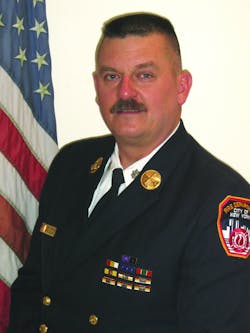Discipline is not a popular topic in the fire service—or anywhere else for that matter. The reason is most people think discipline is punishment. Well, discipline is many things and, unfortunately, one of them is punishment. You can call it anything you want, but sometimes, somebody just needs a good talking to or a few days off. That’s the bad news. The good news is that many other aspects of discipline, and we will be talking about how discipline is preventative and positive, can produce great results. Let’s look at some firehouse discipline problems and solutions.
Prevention first
One of the best ways to deal with discipline in the firehouse is through prevention. It is always easier to prevent problems than to solve them. Chief and company officers who command effective and well-trained units know a secret. They know how to act, how to talk, how to watch, how to look over and how to keep their unit on the straight and narrow. This is not easy! It’s a skill that takes years to develop and master.
Be an example
When a new officer begins working in a new assignment, they are not clueless. Most of us have had wonderful officers whom we worked for and learned from. Many of those lessons and experiences will be helpful later in your career when you are riding the front seat. So let’s look at some of the positive behaviors, habits and abilities that good company officers display and that create a disciplined crew.
Setting a good example is always a great way to begin crew development. Officers who arrive early for their shift or drill night are showing the firefighters how it’s done. Nothing needs to be said. They just have to watch. And it’s not just that. Officers who talk to everyone respectfully and politely promote that type of behavior in their crew. When the front seat of the apparatus is squared away, with the officer’s turnout gear, helmet, radio and other equipment ready for immediate use, you can bet they expect the crew compartment to look the same.
Officers who are honest, who always give it to their crew straight develop that same trend in their people. Officers who lie or deceive their people will certainly be poisoning the well and their crew. Good news and bad news are regular visitors at any firehouse, and the best way to be able to deal with them is to get the information correctly up front. When officers are honest with their people, their people will find it very hard not to be honest with them. I know this all sounds sweet and cuddly, but it is not. Sometimes delivering bad news is hard; sometimes it makes people angry and does not have an immediate positive effect. But the habit of honest delivery is the common denominator that develops that disciplined crew.
Taking care of the people on your crew is also a vital and very effective way of developing positive crew habits. This means watching out for your people. It means getting them some work at an operation, but making sure they are not worked beyond what is reasonable. It means talking to your superiors, maybe a captain of chief, to get your crew the newest and best equipment that is being issued to units. It means making sure the firefighters all get a hot shower and a meal after a long, difficult operation, even before you get yours. Firefighters are pretty sharp people. If you take care of them, they will notice. And when people know you are doing the right thing for them, they will do what it takes to reciprocate. And when an officer always takes care of themselves first, the firefighters will follow suit.
Taking care of your people may also include paying attention to what is going on outside the firehouse—yes, outside and away from work. Yes, that is still your business if it has any impact on the firehouse routine or effectiveness. We are talking about problems that your people might be having with spouses, children, money, alcohol or any other situation. If they bring any of the negative results of their personal problems into the firehouse, it is now on your plate. When you start doing this, you will be heading off the problems that might have developed in the firehouse had you chosen to ignore them.
In sum
These are just a few of the ways that good company and chief officers can work at developing a good disciplined crew ahead of time before problems arise, rather than working at disciplining the crew after the problems have developed.
About the Author
John J. Salka Jr.
Battalion Chief
JOHN J. SALKA JR., who is a Firehouse contributing editor, retired as a battalion chief with FDNY, serving as commander of the 18th battalion in the Bronx. Salka has instructed at several FDNY training programs, including the department’s Probationary Firefighters School, Captains Management Program and Battalion Chiefs Command Course. He conducts training programs at national and local conferences and has been recognized for his firefighter survival course, “Get Out Alive.” Salka co-authored the FDNY Engine Company Operations manual and wrote the book "First In, Last Out–Leadership Lessons From the New York Fire Department." He also operates Fire Command Training, which is a New York-based fire service training and consulting firm.

